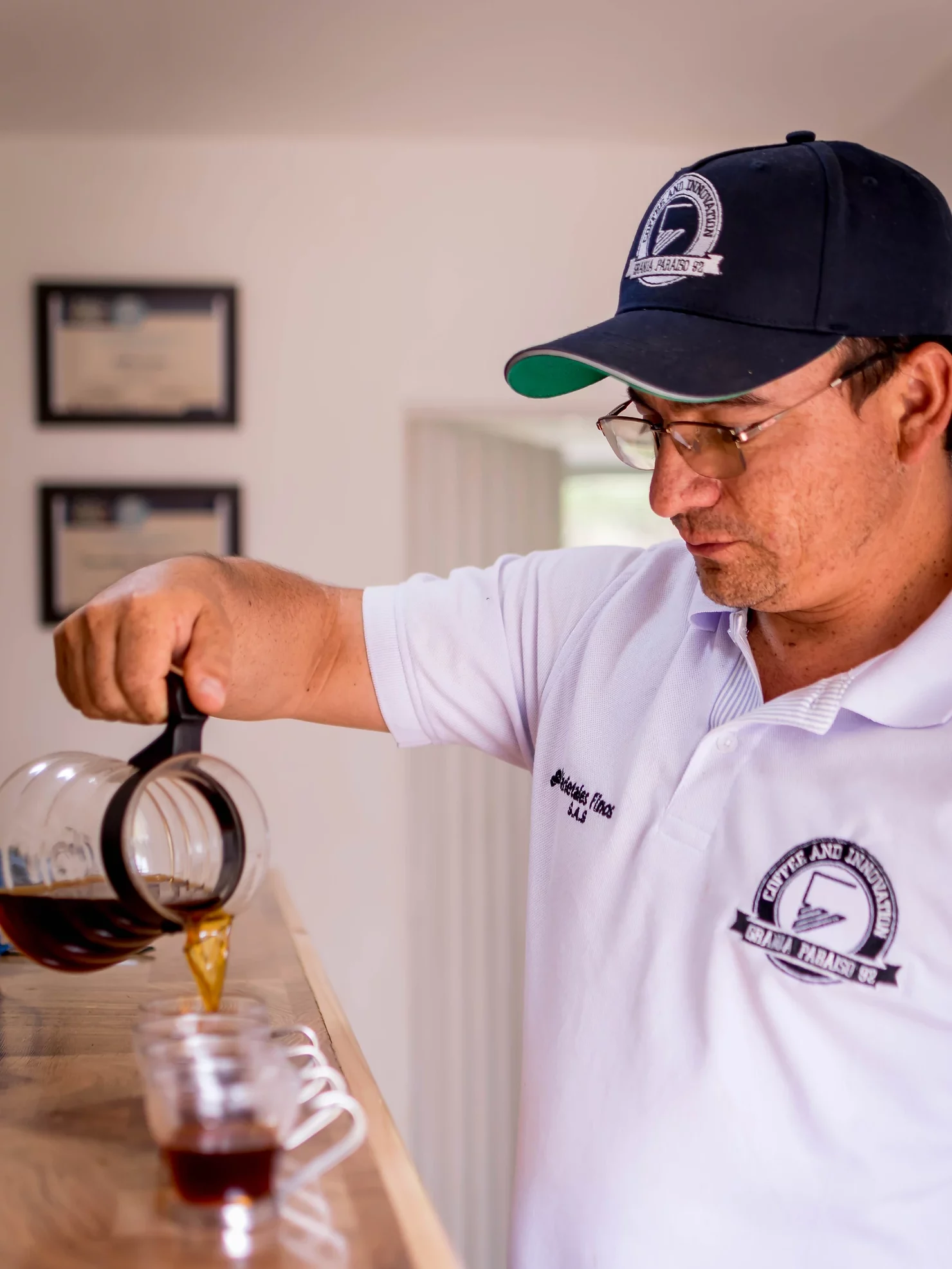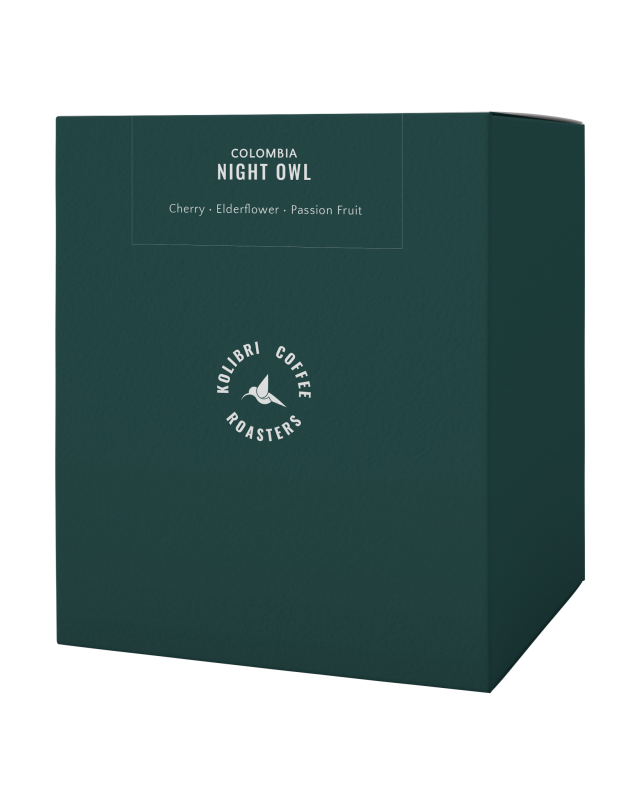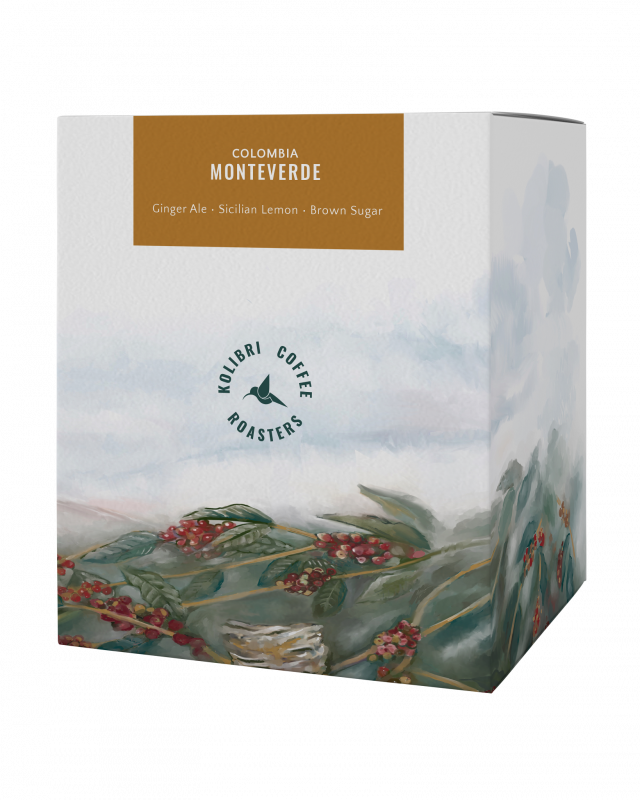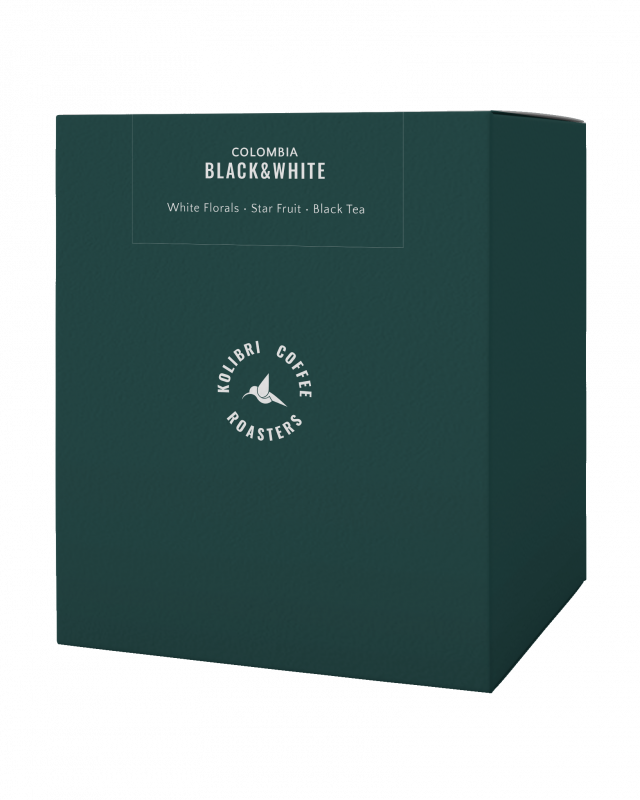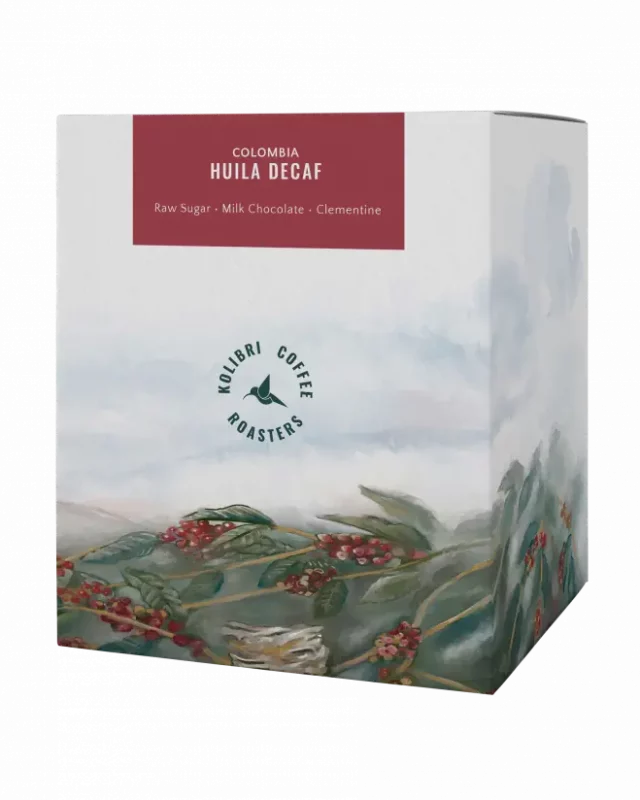About Granja Paraiso 92
It is a family 5 hectare farm located in Piendamó, Cauca, southwest of Colombia, situated at an altitude of around 1930 masl, where different varieties are grown.
They stand out for their highly innovative cultivation systems, their own microbiology laboratory, a quality laboratory and a processing plant, all aimed at producing a unique coffee that can be verified through the multiple awards obtained.
With more than 26 years of experience in coffee cultivation and more than 16 years dedicated to researching coffee microbiology, Wilton Benítez is a chemical engineer, Q Processing Professional and a Colombian pioneer in the application of controlled fermentation protocols with inoculation of microorganisms in coffee production. As in the wine, beer and cheese industries, fermentation with microorganisms and other techniques, such as thermal washes, can help the development of new and unique flavour compounds.
ProcessingThe process initiates with a meticulous selection of beans based on density and size. Subsequently, the coffee undergoes immersion in water at 90 degrees to enhance the sweetness of the beans, followed by depulping (removing the skin). At this point, the fermentation process kicks in for 36 hours with a yeast, followed by washing and elimination of the mucilage. The beans are then mechanically dried for 46 hours at a constant temperature of 40 degrees Celsius.
Before decaffeination begins, the green beans undergo steam treatment to eliminate the silver film, increase moisture, and open the pores for easier caffeine extraction. At this stage, the coffee is immersed in ethyl acetate (E.A.)
How to brewFilter Recipe
Grind size: Medium
Ratio: 1:16
Dose: 18g
Water: 300g / 92°C
Brew time: 2′ 5″
Espresso Recipe
Dose: 17,5 g
Time: 25 – 28 sec
Yield: 38 g
This coffee has been roasted for all filter and espresso brew methods. To find the method that suits your taste, check out our Brew Guides.
